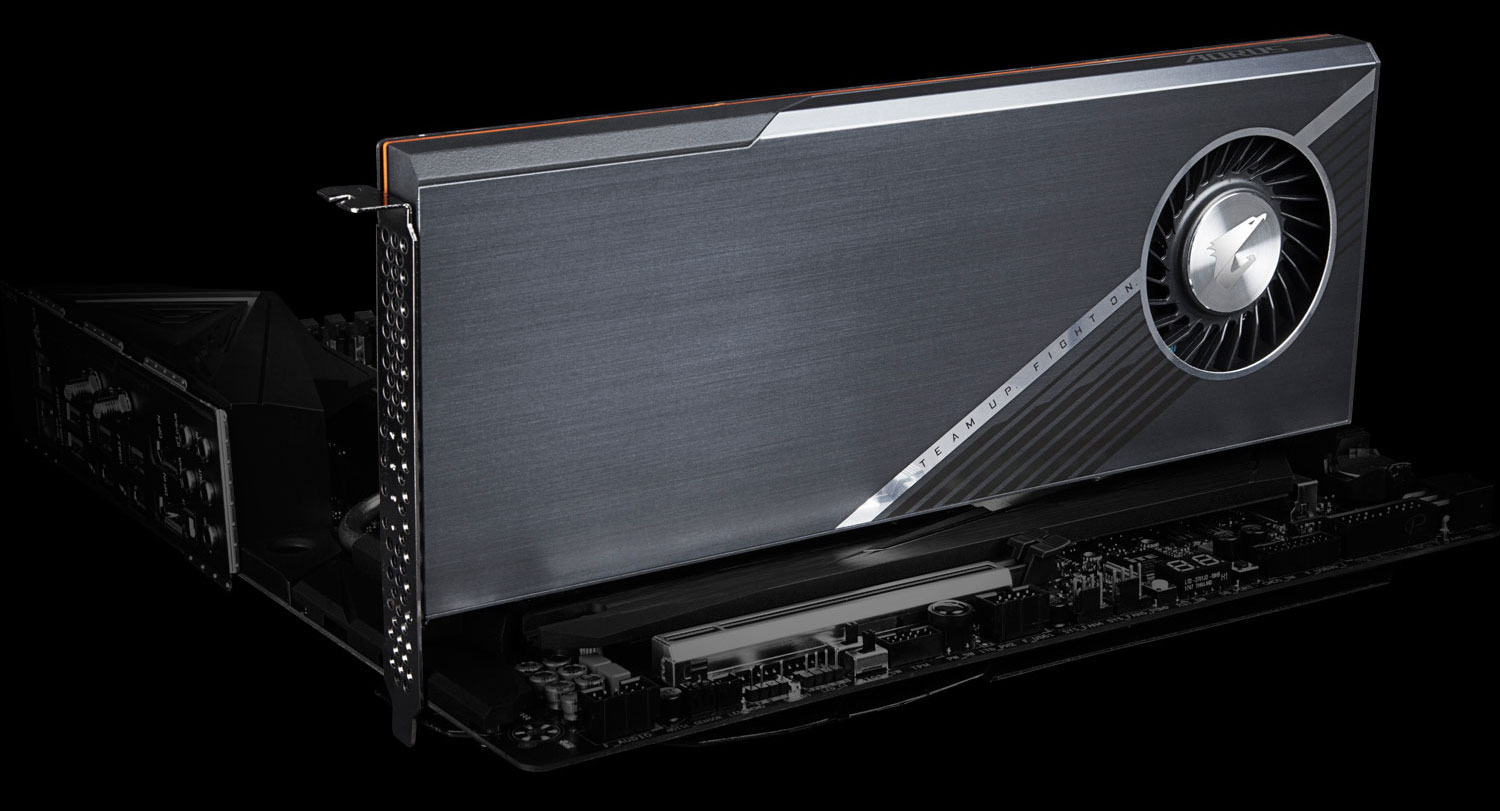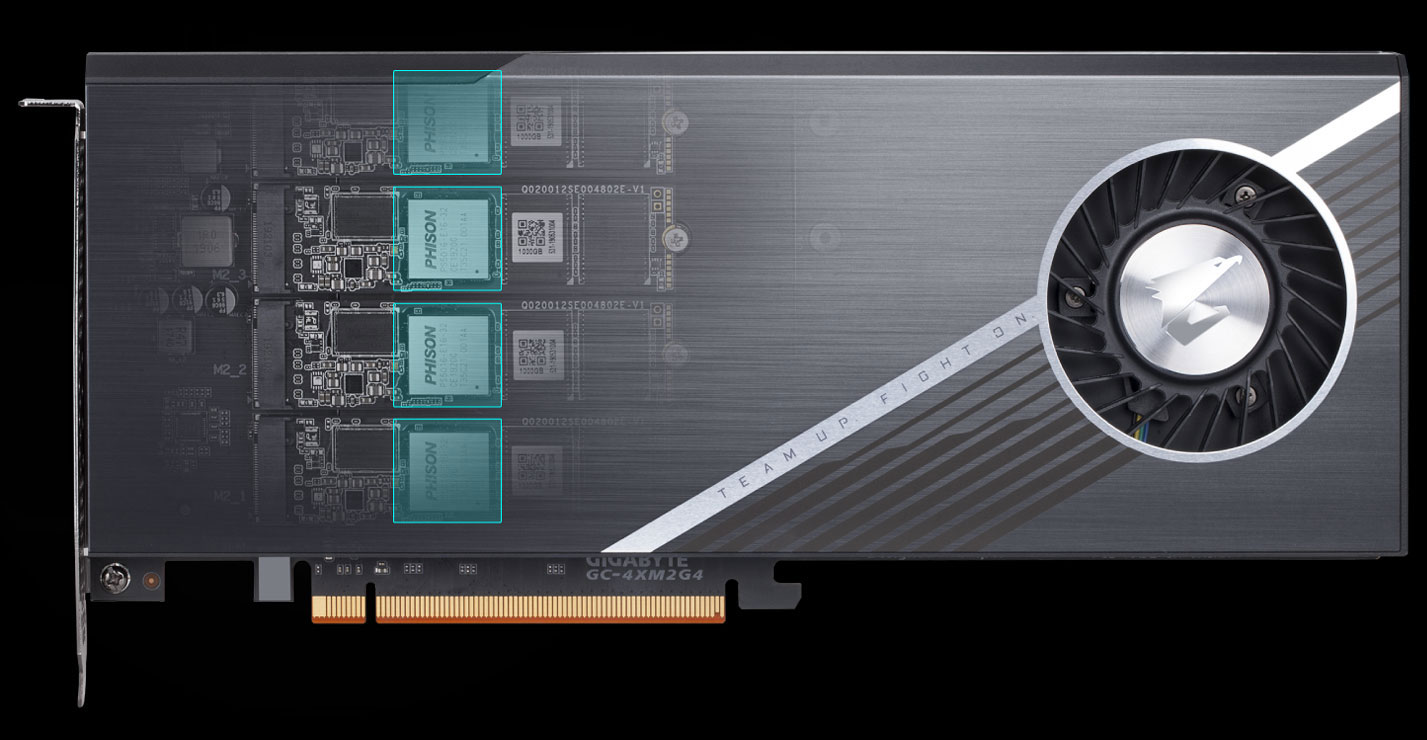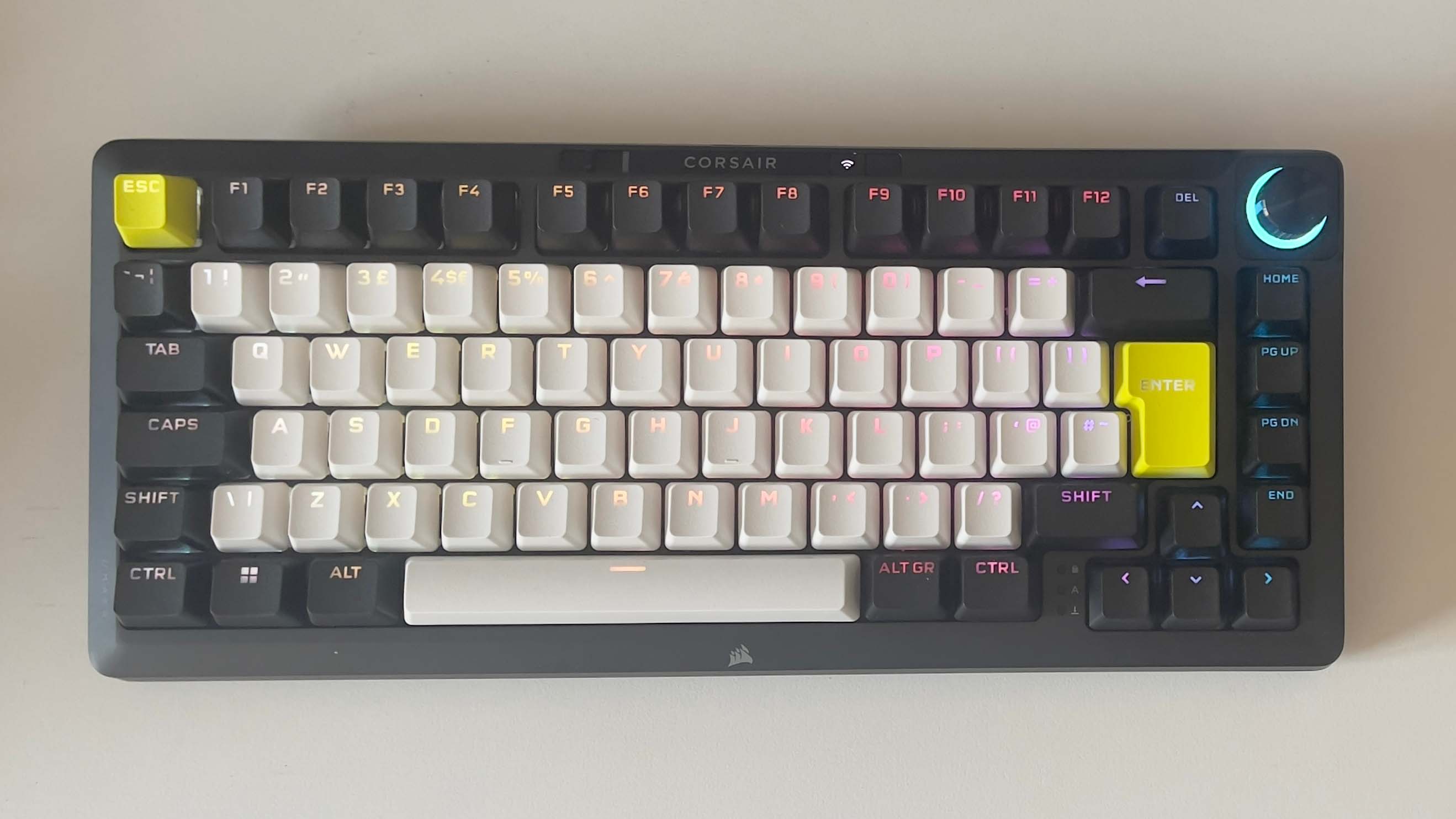This 8TB storage drive stuffs four SSDs into a PCIe card to hit 15,000MB/s
Pair this with a next-gen Threadripper CPU and you've got a drool-worthy configuration.

The arrival of PCI Express 4.0 on consumer systems has led to the release of several blazing fast solid state drives capable of sequential read performance of up to 5,000MB/s. That's around nine times faster than the speediest SATA-based SSDs. It's also almost pedestrian next to Gigabyte's upcoming add-in card (AIC) solution with four high-speed NVMe SSDs stuffed inside.
First introduced at Computex a few months ago, the upcoming Aorus Gen4 AIC features four 2TB SSDs configured in a RAID 0 array. According to Gigabyte, this beastly storage card is rated to deliver up to 15,000MB/s for both sequential reads and writes.
Gigabyte notes those figures are based on its own internal testing and that actual results may vary. That goes for pretty much any storage solution. In this case, Gigabyte might be rounding the numbers—back at Computex, it was touting reads of up to 15,376MB/s and writes of up to 16,184MB/s.

Like every PCIe 4.0 SSD we have seen to date, the drives in Gigabyte's AIC solution are powered by Phison's PS5016-E16 controller.
One of the caveats to hitting these crazy-high speeds is that only AMD has embraced the PCIe 4.0 spec, and as it pertains to consumers, and just on its X570 chipset for third-gen Ryzen. You can still use these drives in an Intel rig or an older AMD platform, but you won't maximize performance.
The other caveat is cooling—hitting these high speeds and maintaining them for any meaningful amount of time requires keeping thermals in check. Gigabyte says its AIC solution tackles this by combining "smart active and passive cooling."
"A large all copper heatsink touches the SSD’s hottest controller and transfers heat to the multi-cut copper heatsink. The blower fan helps to draw heat away more quickly, preventing thermal throttling on the SSD to maintain amazing speeds at all times.," Gigabyte says.
Keep up to date with the most important stories and the best deals, as picked by the PC Gamer team.
It's basically a full-body suit of armor, and according to Gigabyte, temps are 30C lower with it than without.
This kind of speed is way overkill for a gaming setup—though SATA SSDs are far slower, they're still much faster than a hard drive. Anything faster really only comes into play outside of gaming, like transferring large video files and that sort of thing. This particular drive is probably best suited for a workstation environment, though Gigabyte seems to be targeting enthusiast consumers.
While a product page now exists for this drive, Gigabyte has still not announced a launch date or price.
Paul has been playing PC games and raking his knuckles on computer hardware since the Commodore 64. He does not have any tattoos, but thinks it would be cool to get one that reads LOAD"*",8,1. In his off time, he rides motorcycles and wrestles alligators (only one of those is true).


